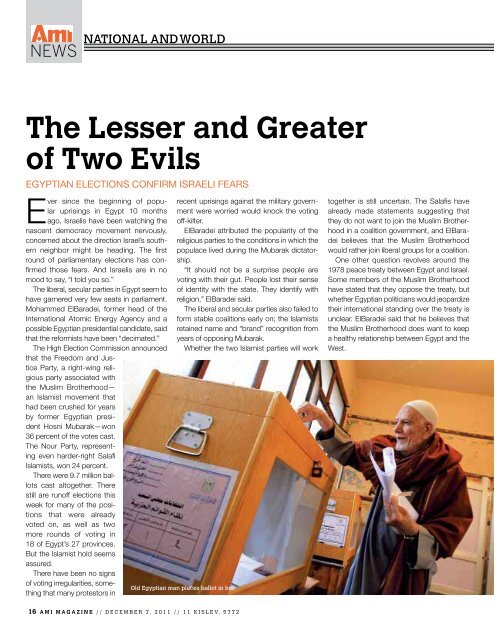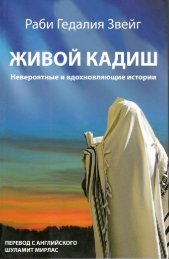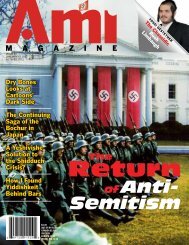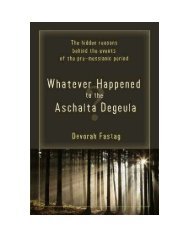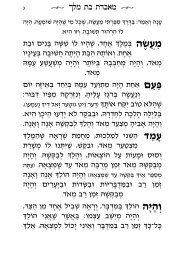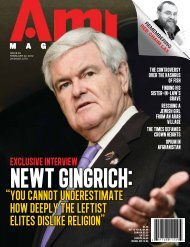4 - Jewish E-Books
4 - Jewish E-Books
4 - Jewish E-Books
You also want an ePaper? Increase the reach of your titles
YUMPU automatically turns print PDFs into web optimized ePapers that Google loves.
NEWS<br />
NATIONAL AND WORLD<br />
The Lesser and Greater<br />
of Two Evils<br />
EGYPTIAN ELECTIONS CONFIRM ISRAELI FEARS<br />
Ever since the beginning of popular<br />
uprisings in Egypt 10 months<br />
ago, Israelis have been watching the<br />
nascent democracy movement nervously,<br />
concerned about the direction Israel’s south-<br />
<br />
round of parliamentary elections has con-<br />
<br />
mood to say, “I told you so.”<br />
The liberal, secular parties in Egypt seem to<br />
have garnered very few seats in parliament.<br />
Mohammed ElBaradei, former head of the<br />
<br />
possible Egyptian presidential candidate, said<br />
that the reformists have been “decimated.”<br />
The High Election Commission announced<br />
that the Freedom and Justice<br />
Party, a right-wing religious<br />
party associated with<br />
the Muslim Brotherhood—<br />
an Islamist movement that<br />
had been crushed for years<br />
by former Egyptian president<br />
Hosni Mubarak—won<br />
36 percent of the votes cast.<br />
The Nour Party, represent-<br />
<br />
Islamists, won 24 percent.<br />
There were 9.7 million ballots<br />
cast altogether. There<br />
still are runoff elections this<br />
week for many of the positions<br />
that were already<br />
voted on, as well as two<br />
more rounds of voting in<br />
18 of Egypt’s 27 provinces.<br />
But the Islamist hold seems<br />
assured.<br />
There have been no signs<br />
of voting irregularities, something<br />
that many protestors in<br />
recent uprisings against the military government<br />
were worried would knock the voting<br />
off-kilter.<br />
ElBaradei attributed the popularity of the<br />
religious parties to the conditions in which the<br />
populace lived during the Mubarak dictatorship.<br />
“It should not be a surprise people are<br />
voting with their gut. People lost their sense<br />
of identity with the state. They identify with<br />
religion,” ElBaradei said.<br />
The liberal and secular parties also failed to<br />
form stable coalitions early on; the Islamists<br />
retained name and “brand” recognition from<br />
years of opposing Mubarak.<br />
Whether the two Islamist parties will work<br />
Old Egyptian man places ballot in box<br />
<br />
already made statements suggesting that<br />
they do not want to join the Muslim Brotherhood<br />
in a coalition government, and ElBaradei<br />
believes that the Muslim Brotherhood<br />
would rather join liberal groups for a coalition.<br />
One other question revolves around the<br />
1978 peace treaty between Egypt and Israel.<br />
Some members of the Muslim Brotherhood<br />
have stated that they oppose the treaty, but<br />
whether Egyptian politicians would jeopardize<br />
their international standing over the treaty is<br />
unclear. ElBaradei said that he believes that<br />
the Muslim Brotherhood does want to keep<br />
a healthy relationship between Egypt and the<br />
West.<br />
16 AMI MAGAZINE // DECEMBER 7, 2011 // 11 KISLEV, 5772


